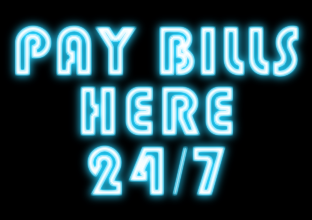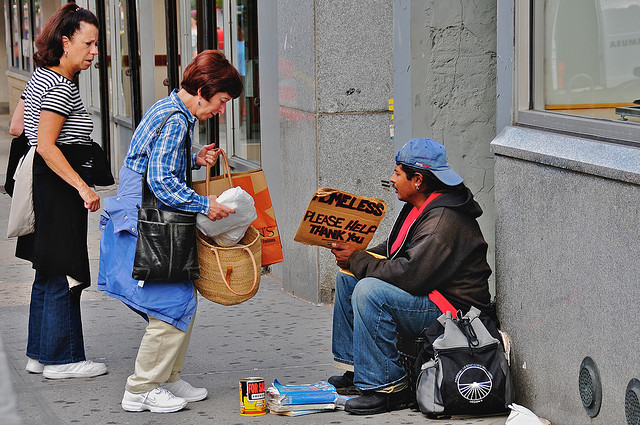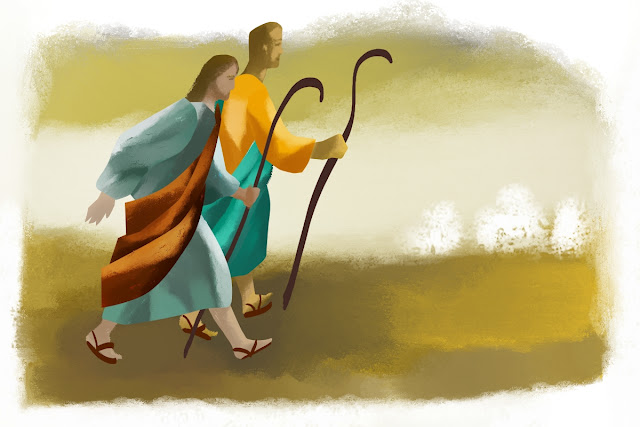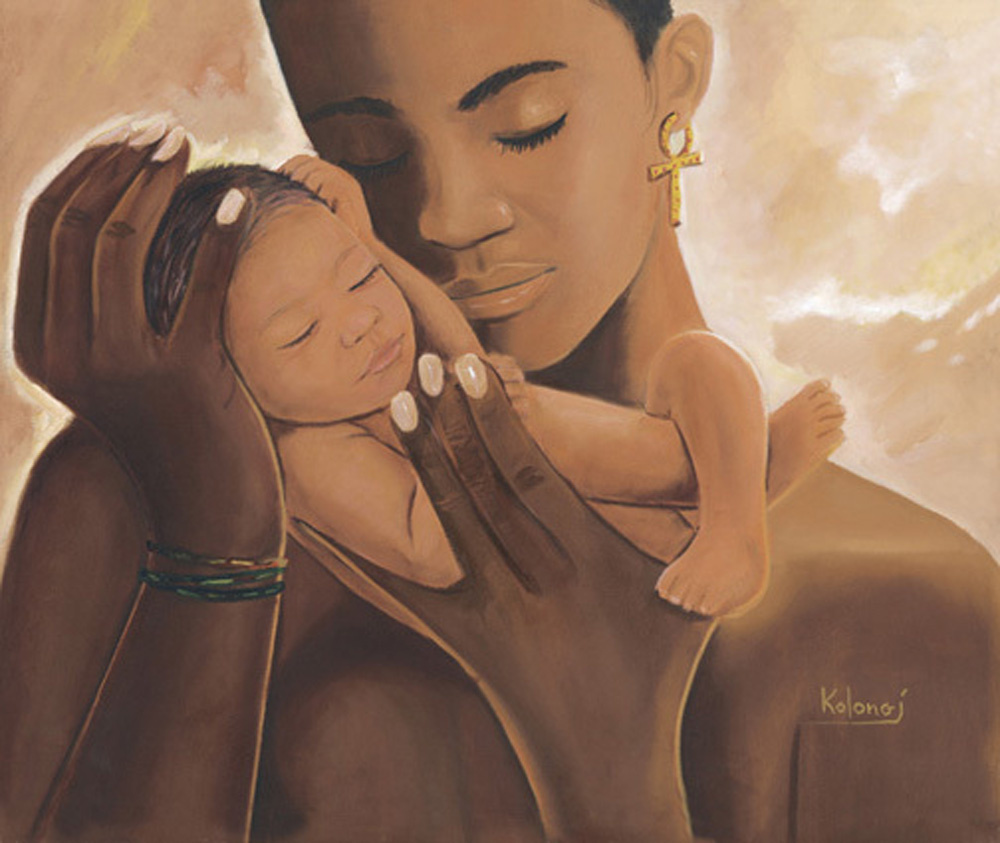 One recent night, a person I had never met diverted me from visiting my favorite Saturday night spot—my pillow. After I had a drink with friends, a woman named Leslie asked us for some help. Lacking cash and wanting to meet her need directly, and despite the protestations of fear (and maybe prudence) within me, I slid into her passenger seat. To pay her utility bill at the last minute required a visit to the ATM and then to an isolated gas station whose sign flickered, Pay bills here, 24/7.
One recent night, a person I had never met diverted me from visiting my favorite Saturday night spot—my pillow. After I had a drink with friends, a woman named Leslie asked us for some help. Lacking cash and wanting to meet her need directly, and despite the protestations of fear (and maybe prudence) within me, I slid into her passenger seat. To pay her utility bill at the last minute required a visit to the ATM and then to an isolated gas station whose sign flickered, Pay bills here, 24/7.
At the edge of my comfort and willingness to trust, I rode in Leslie’s car, gave cash, and trusted that she would get me home. When my head hit my pillow I was grateful to be safe—and to have taken the risk.
But other kinds of discomfort remained. First, learning that we could pay a bill at a gas station reminded me that I have never struggled up to the last minute to keep the lights on. Plus, I had felt a physical insecurity which so many feel daily and more acutely. Second, my hesitant distrust of Leslie had probably stifled a friendship. For all our differences in race, class, age, and life experience, we enjoyed chatting. Yet there was another difference. She had trusted me, and I had distrusted her, as if I had the moral high ground.
The Gospel says that in others we meet Christ. But more specifically, in choosing to become vulnerable, our hearts glimpse the heart of Christ. Acts of love in our everyday lives let us taste the perfect poverty of Jesus, who risked discomfort (and much more) to dwell among us as poor, refugee infant and to accompany those cast to the margins—even unto death. Each of us is called to grow into Jesus’ poverty, chastity, and obedience (see Vatican II’s Lumen Gentium, 39-40), to be a sign and instrument of God’s closeness to the brokenhearted. We encounter Jesus’ heart more deeply by relating as he relates, even through the discomfort of seeing our fear, pride, and selfishness.
 This takes many forms. As a mother, Leslie’s great poverty of spirit was in doing what it took to keep the lights on for her family. Meanwhile, I was invited to love precisely as a single person, relying on the contours of my current state. (I suppose the night would have gone differently if I had a family at home.) Through grace, that night helped me grow in poverty of spirit, too—in freedom to love, though aware of my imperfection.
This takes many forms. As a mother, Leslie’s great poverty of spirit was in doing what it took to keep the lights on for her family. Meanwhile, I was invited to love precisely as a single person, relying on the contours of my current state. (I suppose the night would have gone differently if I had a family at home.) Through grace, that night helped me grow in poverty of spirit, too—in freedom to love, though aware of my imperfection.
To become available in this way is to make an “option” for the poor by means of something very precious—our time. I hope this becomes a more regular part of my life. Even with laundry to do after work, friends, coursework to complete, and a pillow to visit, we singles in particular often have immense freedom, even when it is inconvenient, to give of our time. I do not pretend this is easy; to opt is to make a decision. Here is a “to-do list” of six unique, daily ways that you and I can try to bear witness to God’s closeness to the brokenhearted—whatever our state in life.
- Schedule intentionally and with detachment. Build the poor into your schedule—perhaps volunteer each Saturday morning. Then, from moment to moment, be ready to change your schedule to opt for someone in need.
- Pack your bags. Do not bring something you would fear losing (for me, it’s my laptop). What you take with you, moreover, can become a sign of love. A phone is a tool to give directions and a way to remain in touch. A wallet can produce a bus ticket or a pair of sandwiches. Photos invite stories. Your water bottle, lunch, or scarf can be given away, and keys let you offer a ride to a neighbor.
- Discern. Ask how your gifts, your future family or religious community, your friend group, and your career can serve.
- Consume with compassion. Stick to what you need, and avoid products that come at the expense of human dignity and ecological integrity.
- Get creative. Choose hobbies that help you live simply and sustainably, lessening your impact on the poor worldwide. Learn to garden, compost, and cook with local foods. Make the companies where you invest and work more socially responsible.
- Opt for the poor with your money, too. No matter how you opt for the poor with your time, habits, consumption, hobbies, and career, if you have spare change in your pocket, you have more than almost everyone.









Thanks, Kristi! I have recently been in a state of turmoil over the impending sale of my house. Yesterday’s gospel invited me to acknowledge and use my talents, which I have not done in some time due to my age among other things. I asked Jesus to tell me what I could do to serve those in need, and believe it or not, got an answer today in an e-mail from a new organization looking for help with families in crisis. So I called the phone number of the director, had a long talk with her, and found out that my skills would be a perfect fit. They open in January and I’ll be there. Praise God!!